Archive
2021
KubaParis
Issue de secours


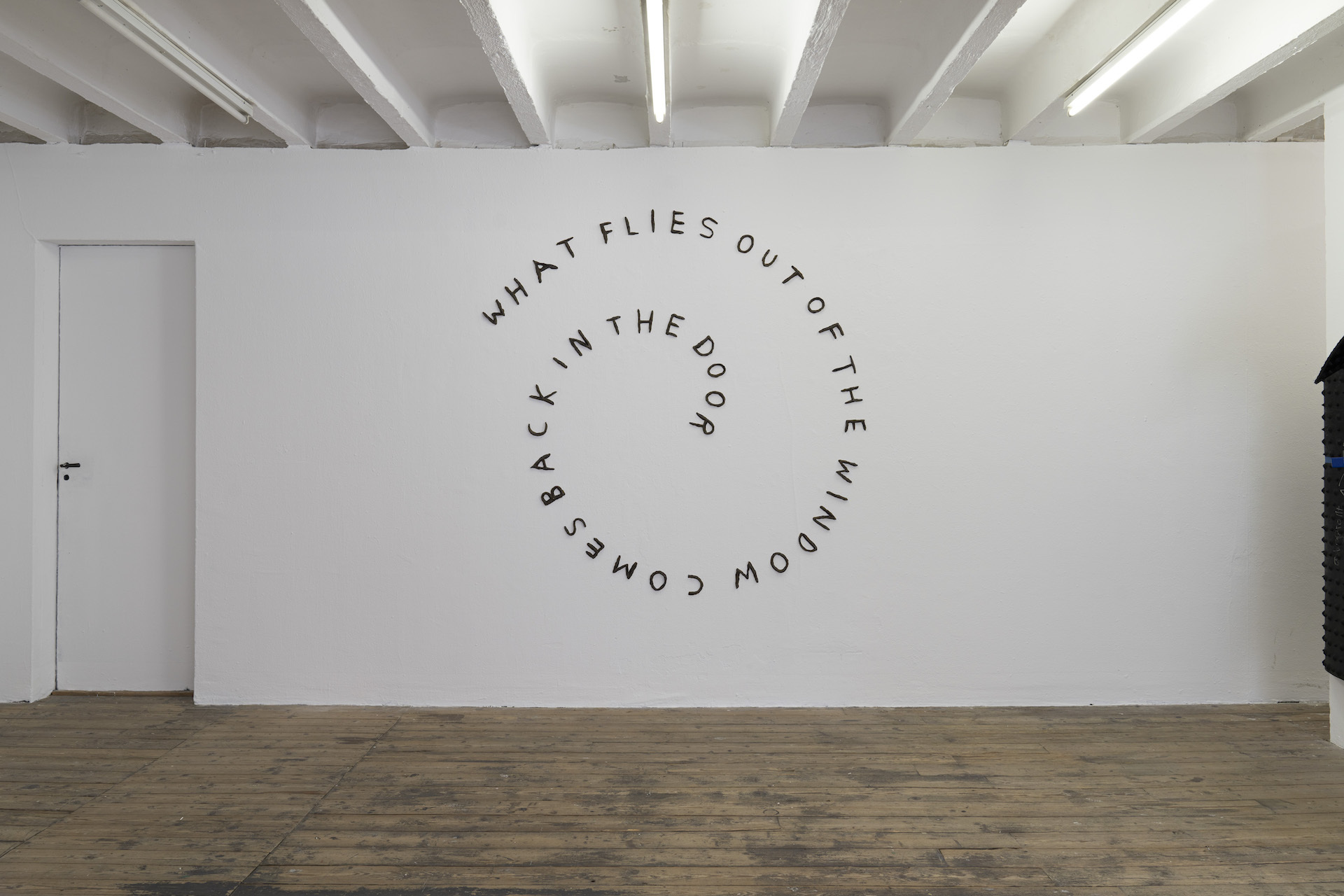
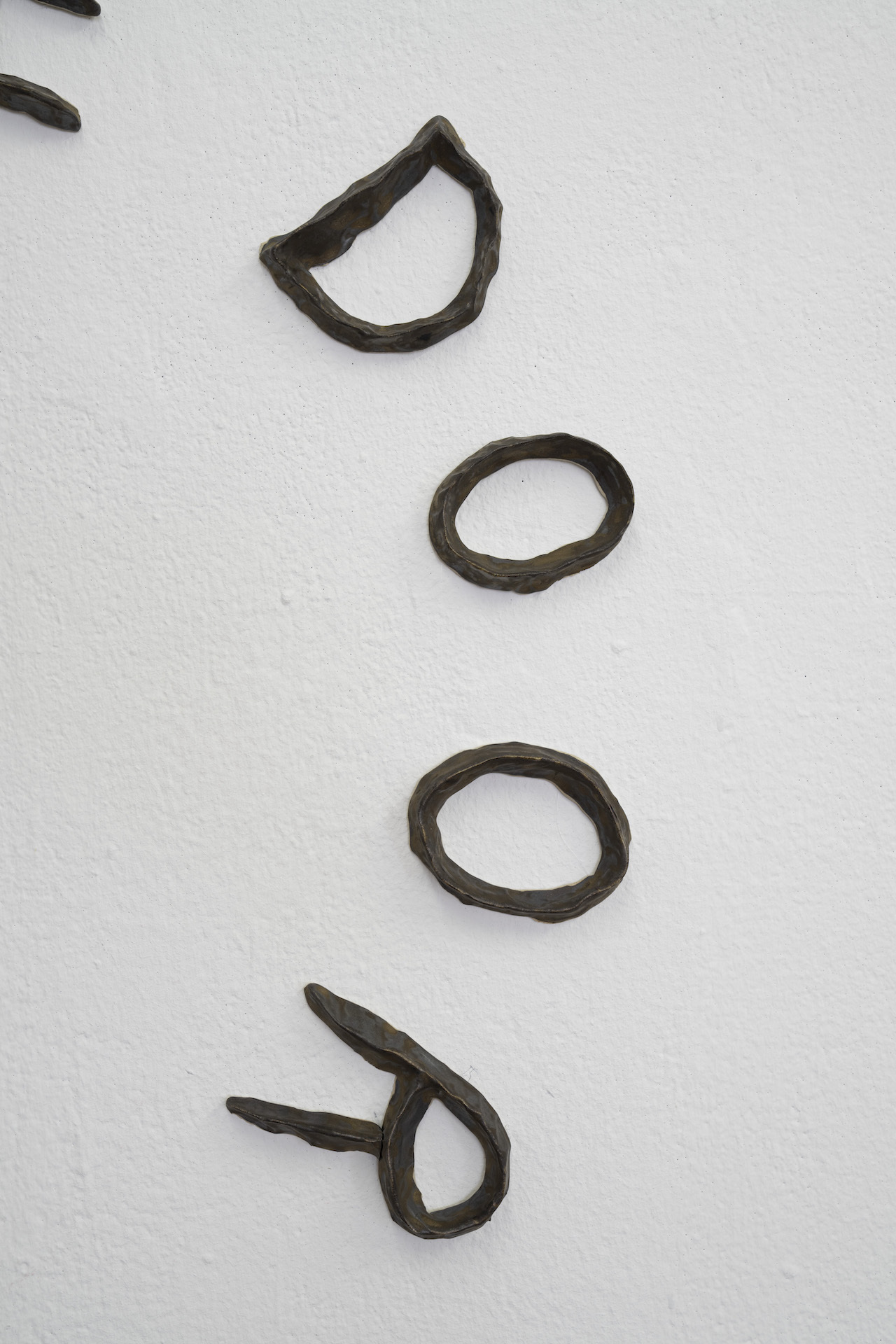

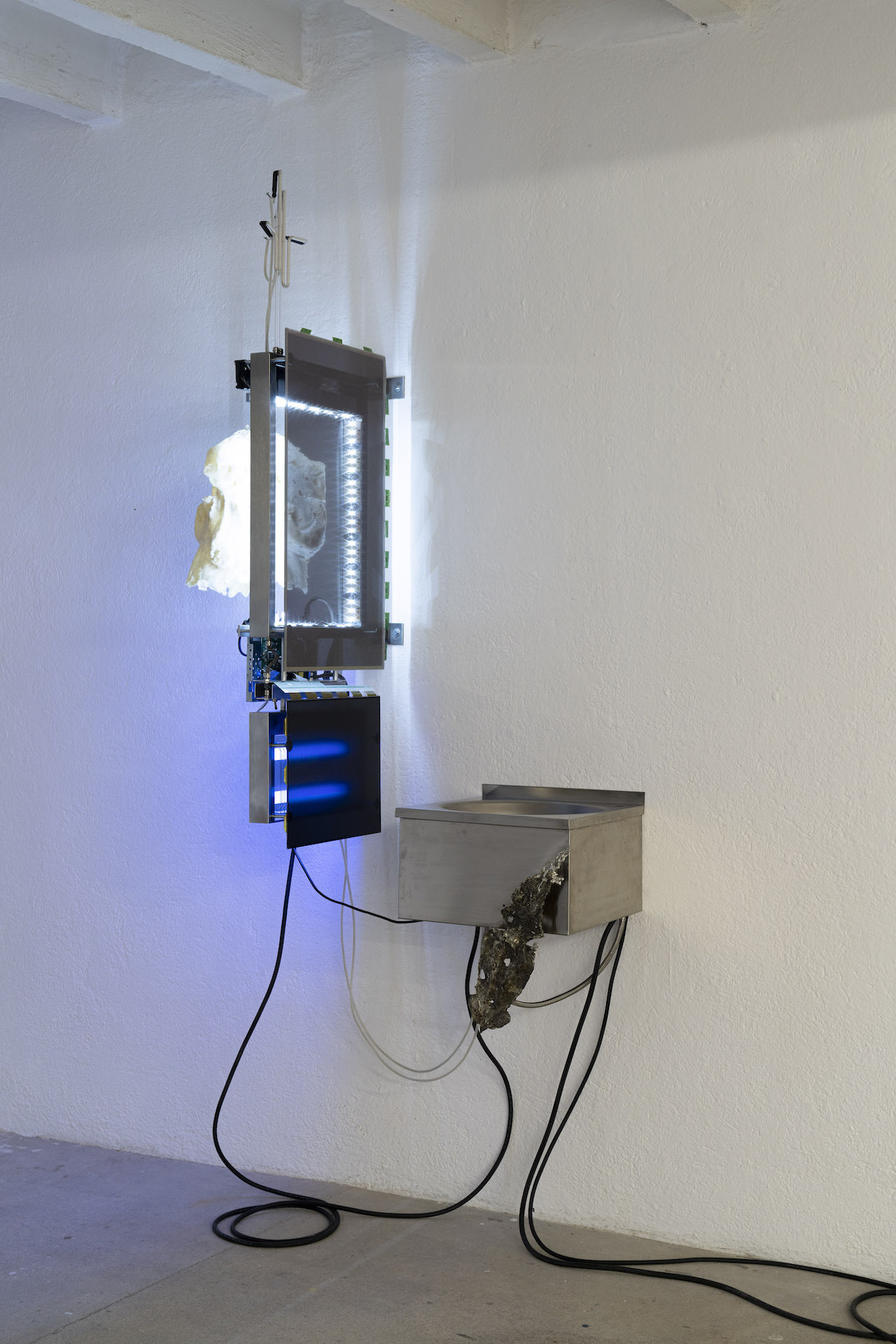

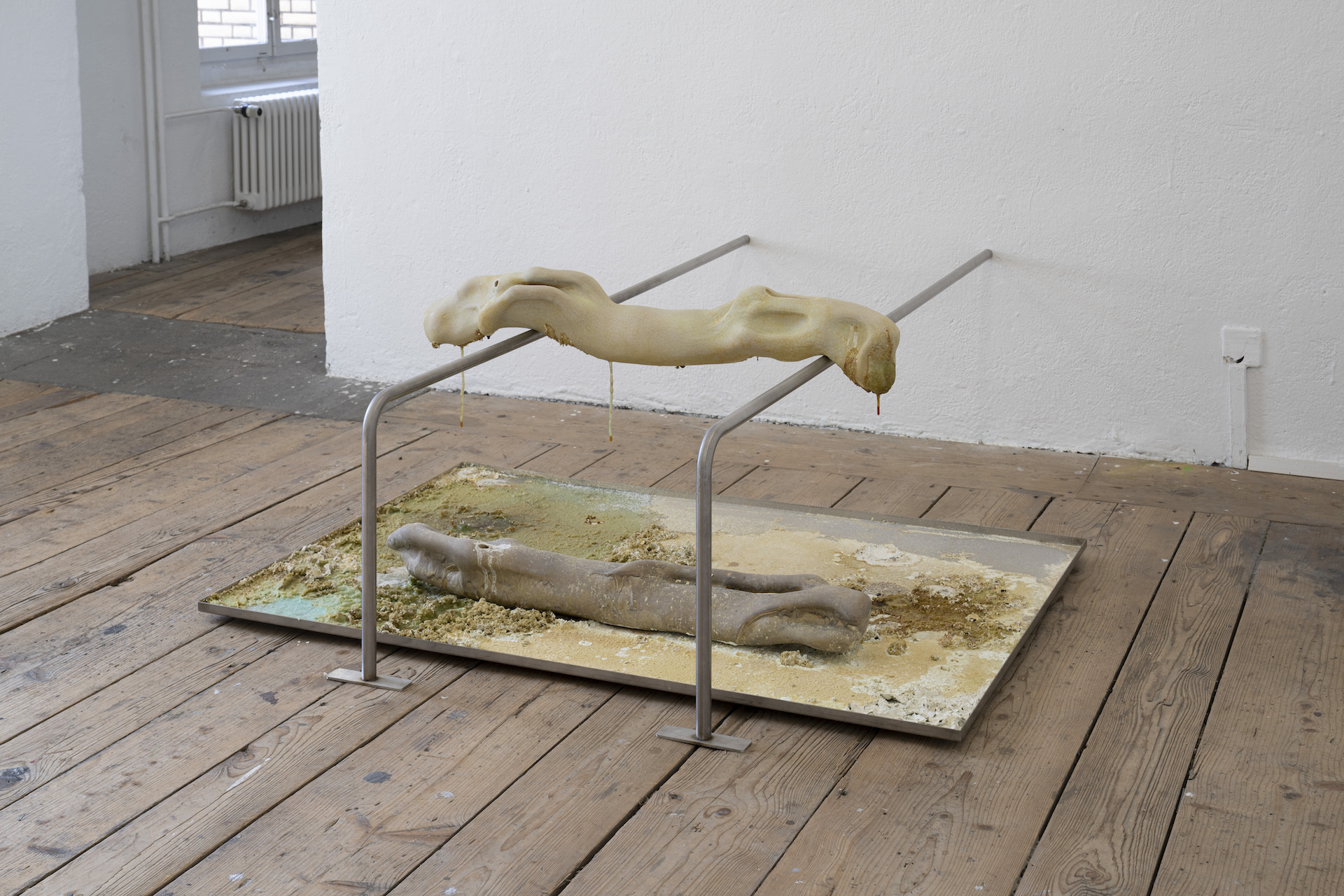

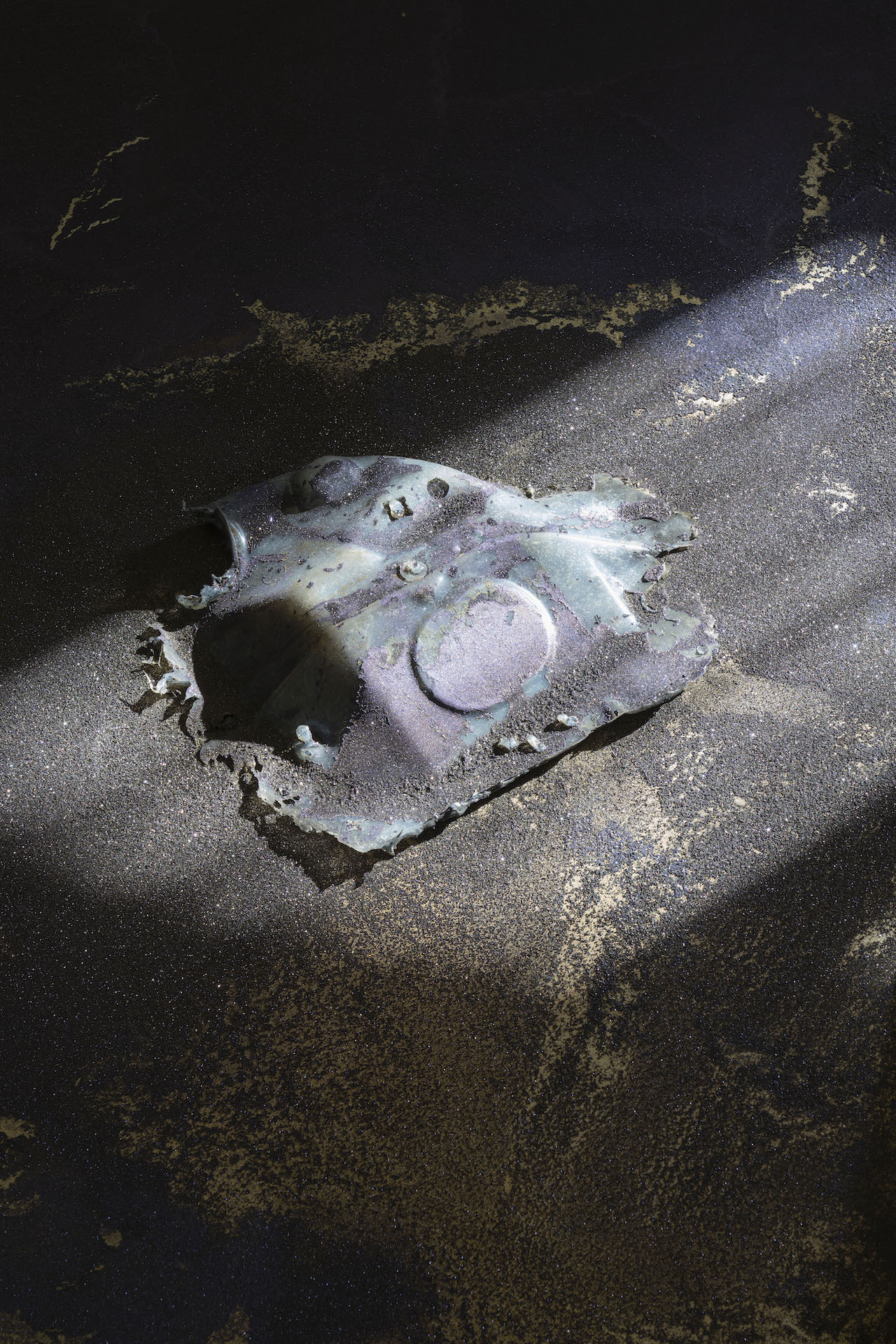


Location
Stiftung BINZ39Date
19.05 –18.06.2021Curator
Kristina GrigorjevaPhotography
Claude BarraultSubheadline
Six positions on entropy.Text
April 5th 2021, Sihlquai 133, Zurich
Entropic Dinner: This is a transcript of a conversation that happened on the fine evening of April 5th 2021 in preparation for the exhibition
Unknown Speaker
Is this the first meeting that you all get together like this?
Unknown Speaker
Yes.
Unknown Speaker
I thought that it would be nice to look at all of these texts together, and maybe see if there are links. There are all these little connections that are there, which is quite obvious as well, because the topic itself is…
Unknown Speaker
What is the topic? Can we define? For my humble understanding?
Unknown Speaker
Well, I think it started with the the Robert Smithson text, right? So, to me, it’s entropy as read through Smithson. He really defines what my understanding of entropy is. And then the other texts, or the other authors, they kind of complete this definition in a way.
Unknown Speaker
And when you first started with Smithson, was it with a work or more with the theoretical part?
Unknown Speaker
It was really this one text at first. And then I think, X , you showed me that work of his, do you remember? It was this image…
Unknown Speaker
Because I think with Smithson it’s really this powerful image of the work itself, you know. Of course, it is really interesting to have this theoretical input, but I think in the work and in the image - you have everything inside, you know. And it produces this imagination or this reflection about entropy. I think that the work itself is much more familiar than the texts. This is just my opinion. And for me, I was coming more from Stiegler and his concept of negentropy.
Unknown Speaker
To me, what Smithson expresses or how he describes entropy is really on point. Like this example he takes of Marcel Duchamp shattering this glass and then trying to put it back together. To me, that’s a really visual way to explain exactly what entropy is about. It’s a missing link, whatever gets lost, is lost. And then he goes into how the energy crisis can also be seen as a form of entropy. But then if you read Stiegler, he takes it on a more global scale, almost like saying that there are more ingredients in the play. It’s not just the material. It’s not just the balance of energies. How does he define negentropy, again?
Unknown Speaker
Wait, when we speak Anthropocene, we speak of human intervention. And then with Neganthropocene we start looking at the negative impact of the human, right?
Unknown Speaker
Right, but it’s interesting because Anthropocene, Neganthropocene are these big terms, you know? And today we are really in this reflection about the Anthropocene and how the human is really like a geological strata of the world and how we transformed the world with everything that humanity made. For me Anthropocene also is not obvious to understand really, because I think nature is really stronger that human. Of course humans destroy a lot of things. But I think, for me, the only way that humans can totally destroy the natural would be…like with the atomic bomb. Of human creation, you know. When there is an earthquake and tsunami or something that that, you know, it’s bigger, it destroys everything.
Unknown Speaker
But also, when you speak of everything, we speak of us, right?
I mean, even with atomic bombs maybe we will be dead, but not everything will be dead. Of course there will be life after us. And it’s much bigger than us, like you mentioned before. And from all those texts, that one that I know, the best, or that I’m really familiar with is the text by Lynn Margulis. And I think it’s really inspiring because she questions the whole evolution, how we wrote it down and that it could have actually been completely different. ; that bacteria and small life forms have a much bigger impact. For me, for my work this is really inspiring, to be aware of all this bacteria inside of us - seven kilos of it - and all the surfaces that are alive. Especially during these times, when we are always sanitising, trying to clean everything. This idea of clean-ness. It’s a Witz, a blague, a joke. You cannot clean everything. Just to link the text from Lynn Margulis on this topic. I love her work so much. She’s a microbiologist, but often she puts a poem in the beginning of her texts as an intro, and it’s so nice.
Unknown Speaker
It’s also interesting to think that all organisms are very much enmeshed in a network. Maybe it’s not just something huge, that puts humankind down but very small bits, like you see now with the virus. A human body is an organism that hosts many other organisms, like bacteria. Not just that, but also minerals. I mean, we consist of water and minerals. In that sense we are materially connected with geology and the world around us. I’m not sure if it’s so easy to make a distinction between humans and nature. That’s the question. Where do you draw the line?
Unknown Speaker
Exactly, it’s the control as well. As you were saying how humans want everything to be clean. And these control measures influence in fact how we all live and function together. And I think that’s what also Stiegler is saying, but also Bataille talks about this. And I think all of these thinkers eventually go into how we structure our society and what that has to do with how we progress.
Unknown Speaker
But I think also with Stiegler, it’s really linked with this new digital era that we live in. And, and for me, this is also how I understand Stiegler’s concept of negenthropy. It’s because we are going through this automated behavioural world with all these digital things, and they change our behaviours, they change our perception, they produce this new way of control.
Unknown Speaker
Of course, I see the link between the two. Smithson also talks about recycling, for example.
Unknown Speaker
Entropic bootlegging.
Unknown Speaker
Exactly, that it (recycling) actually makes no sense.
Unknown Speaker
You can’t win back energy.
Unknown Speaker
Yes, almost the definition of entropy.
Unknown Speaker
Entropic bootlegging?
Unknown Speaker
Bootlegging in the sense - well, it’s a very contradictory statement - that recycling and all of this eco movement doesn’t really make sense. Because well, how much sense does it make to recycle? We should also just be consuming less. Because no matter what, you will lose energy.
Unknown Speaker
And as we move on the cycle becomes more and more disordered.
Unknown Speaker
It makes also really sense somehow that you picked this old work of mine, this lettering. It’s something my mother used to tell me - in Swiss German - and I wrote it in English. The phrase is “what flies out of the window comes back in the door” and speaks of karma or actions that will get back to you. Also capitalism will get it what it deserves. So it makes really sense to have this lettering here.
Unknown Speaker
And maybe we can also circle a little back to X’s work, back to the origins and how entropy was a theme there, if it was at all.
Unknown Speaker
I think this kind of came together just out of the discussion. Time was quite short. It kind of came simultaneously with what you were reading at the time. But then the entropy topic was part of that whole process of something that falls apart in sediments, and that something new is going to be formed out of it. That the material kind of transforms and goes through different stages and builds something new. It is the idea of working with material not just on a material. I think it brings the question of how passive material is or how it’s understood. And I think that’s something that through Lithic Alliance I want to question or bring up, with this methodology of seeing it as a collaboration somehow.
Unknown Speaker
With material? A collaboration with material, is that what you mean?
Unknown Speaker
Yes, in contrast to human progress, somehow just taking it away from this anthropocentric point of view, where we are that one and only thing that shapes the world. And question more how much we are actually shaped by the world we live in? Consciously and unconsciously.
Unknown Speaker
Could you maybe take it from here for my benefit into how, how you went from, from that work to this group exhibition? And, and maybe touch upon the title as well?
Unknown Speaker
And why in French?
Unknown Speaker
Because it sounds nice :)
Unknown Speaker
For me, when you say ”issue de secours” I really have to think of Bruno Latour who also talks about an emergency landing. Because he says - this was a really nice image - that we’re in a plane, and we realise that the our final destination doesn’t exist anymore, or has never existed, like the promises of capitalism. And we also can’t turn back - there is not enough fuel. So we have to do an emergency landing. But where and how? And this is the big question. This is also a topic I’m working with right now. I never made the direct link to ”Issue de secours” with this, but I think it makes really sense.
Unknown Speaker
It kind of makes more sense than landing, no? Because I think emergency exit leads to kind of an undefined…
Unknown Speaker
Maybe we all have to jump in the end, you know?
Unknown Speaker
A big trampoline, like 40 meters below.
Unknown Speaker
But ”Issue de secours” is also about safety. Where you feel protected. Like, okay, there there are some ”issue de secours” - we’re safe.
Unknown Speaker
Hope.
Unknown Speaker
I was kind of wondering, it seems like we are in a time now where everything screams for an exit, you know? Become carbon neutral- exit, certain plans-exit…kind of a full stop and turn around. Then it’s a question of what happens after that jump? What to expect of that full turnaround is maybe not really clear. It’s just a thought. That when you jump out of the airplane where do you hope to be landing somehow?
Unknown Speaker
There’s somehow a difference I see between an emergency escape and an emergency exit. Emergency exit, for me, is a kind of architectural element, pre programmed, designed…
Unknown Speaker
Also, sorry that I quote always my own work, but it’s really what I’m working on right now. There is this film that I’m making. And first, my working title was “where to land”, quoting Bruno Latour. But then I was changing it, also because I was influenced by a lot of Tik Tok videos. And the title is now “tell me you had an emergency landing without telling me you had the emergency landing”. You all know those games, no, on Tik Tok.
Unknown Speaker
No.
Unknown Speaker
Like, tell me you’re German without telling me you’re German, you know?And the video is me in a fur coat, kind of an animal, with really long nails everywhere. And then completely disoriented in nature, trying to pick berries with my super long nails. And I don’t know what to do, how to act. And I also think that when we do this drastic “Notbremse”, we are like this - we are disoriented because there is no organised Notausgang. We have to organise, ourselves, somehow. There’s no master plan. And, of course, there are people that have more knowledge and can teach others and you can build communities. And of course, you’re not alone, but there is nobody, or I guess, there is nobody watching from above going “Yes, they’re doing it right.”
Unknown Speaker
But this idea of ”Notausgang” is a bit related to the Christian or an Islamic God, in a way. To, like, the Second Coming. It’s going to get worse and worse and worse, but then suddenly, it’s gonna get really good. For. Some.
Unknown Speaker
For the good ones.
Unknown Speaker
I was once in a situation, not so long ago, where we thought our plane was crashing, and everybody was screaming because we thought we would die. It’s a really crazy story. And then some guy stood up and was reading texts from the Second Coming.
And he screamed “All the sinners will die”. And people were screaming and somehow it was so…I mean, it wasn’t funny, when I think back. Because then we survived. And after a few tries, the plane could land. And then this guy, who was preaching, he just took his seat…
Unknown Speaker
Very much disappointed.
Unknown Speaker
No, it was chaos. I mean, I tell you, they were either paralysed, like me, or screaming. But this memory of mine, which somehow for me, is like a movie that I watched. I wasn’t really there. Also with this text I read from Bruno Latour about this emergency landing, somehow it’s also linked with with this experience.
Unknown Speaker
In this case, actually, a plane does have emergency exits, and they’re always talking about them in the beginning. But when it comes to the real situation, maybe the emergency exit doesn’t even…
Unknown Speaker
It’s to pretend.
Unknown Speaker
It’s just the perfect metaphor in a way.
Unknown Speaker
Yes, this was for me also a moment when I realised that these things that you expect to be organised, when something is really happening - it’s complete chaos. So now it’s complete chaos. I mean, also with this virus and climate catastrophe or however you want to call it, it’s chaos. Huge chaos.
Unknown Speaker
But did you feel connected to the people that were with you on the plane? Kind of?
Unknown Speaker
Yes, a lot.
Unknown Speaker
Because this is actually what Bataille talks about. That these kind of experiences, where you really transgressing or crossing a border, that you’re able to communicate without language. Because it’s so far away from your day experiences, daily life, that you know, that the person right next to you is experiencing the same. It lets you connect in a complete different way than language.
Unknown Speaker
Yes, that’s true. When people experience the same situation, like at the beginning of the COVID we were completely lost, but at the same time…
Unknown Speaker
Also these conversations that you would have during the first couple of months of the COVID. The opinions were very divided. Not exactly black and white, but…
Unknown Speaker
Everybody has their own information, from somewhere. And a theory…
Unknown Speaker
To me it is exactly this, how there are so many opinions on what is right or wrong to do at a particular time of a crisis. And, I mean, it is a crisis. To me, this is also what all these texts we looked at talk about. They try to give you an idea of the possibilities and hope. What do we do next? What is the solution? How can we in fact make it better? Or how do we change the situation? Of course, it’s unfeasible to think that it will be changed quickly or at all. But for me it is the possibility or the hope of change was was what was central in all these texts you proposed.
Kristina Grigorjeva